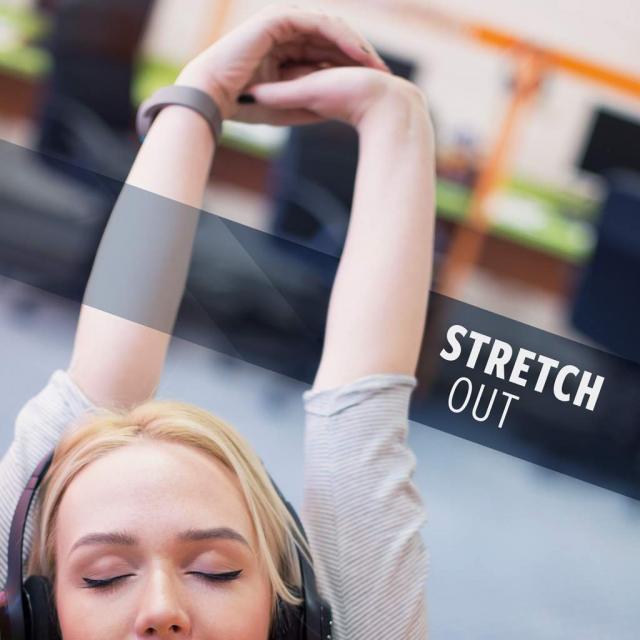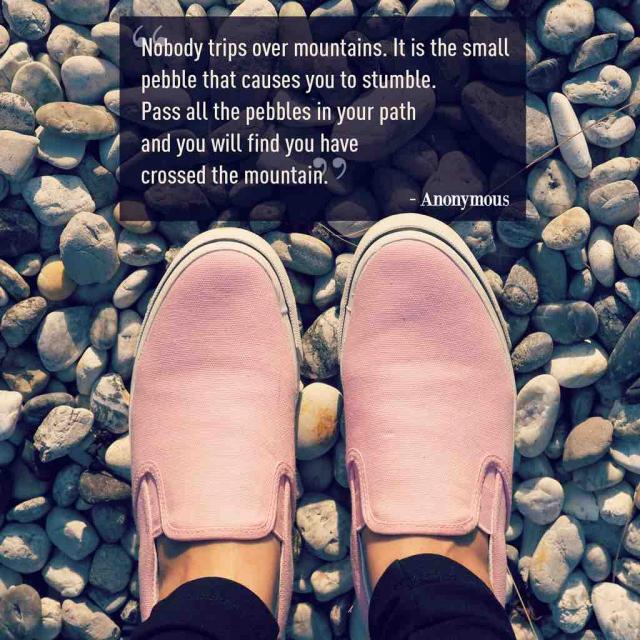Regular physical activity is good for your health, and it can help you quit smoking. Find activities that you enjoy and make exercise a part of your smokefree journey.

Life gets busy. Balancing work, family, friends, school, and other demands can make it difficult to fit regular exercise into your life.
Stay Motivated
Many people start an exercise program but have trouble sticking to it. Here are some simple ways you can stay motivated, have fun, and make exercise a positive habit.
- Plan your workouts in advance. Create a weekly workout plan that works with your schedule. You might have to be flexible and adjust your exercise plan to stay on track when illness, bad weather, or other unexpected events come along.
- Find a workout buddy. Having a friend or group to exercise with can prevent skipping workouts or sleeping through them. Some studies show that working out with a buddy improves results. Plus, it’s more fun than exercising alone.
- Sign up for a race or competition that gives you a reason to train. If you pay an entry fee in advance, you’ll be more likely to participate to get your money’s worth.
- Find a cause or problem you care about and sign up for a charity race or event. You’ll help the charity increase awareness and raise money while you get fit.
- Use a fitness app or activity tracker to measure progress and stay accountable. Explore the internet, the App Store, or Google Play and find tools to track your progress on your smartphone.
- Try a new activity. A different type of exercise can refresh your commitment to improving your health through physical activity.
- Think about the good example you’re setting for your loved ones by exercising regularly. You might inspire them to start a fitness program too.
Set SMART Goals
Starting an exercise routine or taking your current workout to the next level is a great way to improve your health. It can be overwhelming and hard to know where to start. It’s OK to start small, and SMART goals can help.
Specific
“I’ll move more” or “I’ll watch less TV” are too general to be helpful goals. Be specific about what activities you’ll do and for how long. For example, “I will walk five mornings a week for 30 minutes each day.” Also, be specific about how you’ll reward yourself when you reach your goals, such as “I’ll buy myself new sneakers if I stay with my plan for a month.”
Measurable
Including a number in your goal helps you track your progress. For example, you might start with brisk walking for 10 minutes and over time build up to 30 minutes. Keep a record of your progress towards your goal and see how your workouts are going. Write it down in an exercise journal. You might also try wearing a fitness tracker, or getting a health and fitness app for your smartphone.
Attainable
Goals that are too hard could make you give up. Try creating a series of small challenges for yourself, especially if you haven’t been active in a while. For example, you might set a small goal, such as “Call a friend this week to arrange a hike together,” to reach a broader goal—“Go on a hike this month.”
On the other hand, goals that are too easy may not keep you interested or give the results you’re working toward. Finding a healthy balance can help you create exercise goals that you stick with and feel good about when you reach them.
Relevant
Your goals should mean something to you and where you are in your life. Avoid setting goals that someone else wants you to do. Physical activity should be something you like doing, or it will not be something you keep up. Try including different activities. If one kind of activity becomes boring, switch to another type.
Time-Oriented
Pick a timeframe for completing small goals to help you reach a larger goal. For example, “Work in my garden for an hour every Saturday for the next two months.” Setting a start date and deadline for small goals may help you hold yourself accountable. Plus, it easily lets you see if you’ve achieved your goal.
Get Fit With Your Family
Being active with your family can be a fun way to get everybody moving. You’ll be a great role model for your kids, and it’s a good way to help the people you care about live healthy, active lives. Give these ideas a try, or come up with some ideas of your own!
- Play. Swim, toss a ball, or dance to your favorite music. If your kids play sports, practice with them. It shows them that you care and is a great way to be active as a family.
- Explore. Check out your neighborhood as you walk the dog, ride bikes, or head to the park.
- Celebrate. Celebrate birthdays, anniversaries, and other special occasions with an activity. Go for a , plan a treasure hunt through your neighborhood, or hold an obstacle course race in your yard.
- Ditch Your Wheels. Walking, biking, and rollerblading are low-cost, healthy, and fun ways to get around without driving.
- Give Back. Train with family or friends for a charity walk or fun run to benefit a cause or issue you care about.






